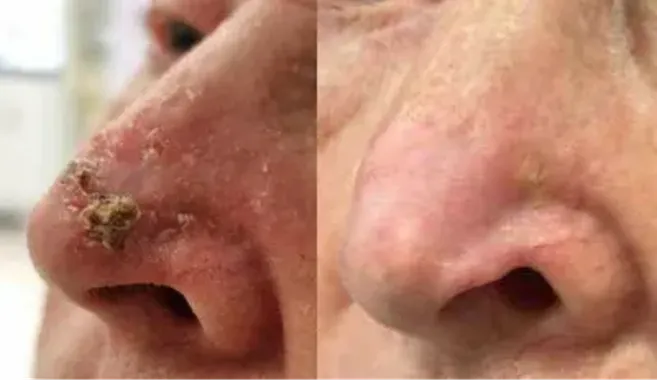Basal Cell and Squamous Cell Skin Cancer Treatment: An Educational Resource
This expert-led educational resource explores radiotherapy as a treatment option for basal cell and squamous cell skin cancers. Designed for healthcare professionals, it covers risk stratification, when to use radiotherapy, treatment planning, and real-world patient outcomes.


Expert-Led Training on Skin Cancer Radiotherapy Options
Are you a healthcare professional looking to expand your knowledge of basal cell skin cancer treatment and squamous cell skin cancer treatment options? This comprehensive educational resource features Dr. James Wilson, a leading oncology skin cancer specialist, sharing his expertise on non-surgical approaches to skin cancer management.
Why Consider Radiotherapy for Skin Cancer Treatment?
Radiotherapy offers an effective alternative to surgery for many patients with non-melanoma skin cancers. This educational video provides detailed insights into:
-
Characterising risk in basal cell carcinoma and squamous cell carcinoma
-
When to recommend skin cancer radiotherapy over surgical options
-
Different types of radiotherapy techniques and their applications
-
Treatment scheduling and patient care protocols
-
Managing side effects and follow-up care
Find the Right Skin Cancer Treatment for Your Patients
For GPs, dermatologists, dermatological surgeons, plastic surgeons, and other healthcare professionals who encounter patients with skin cancer, understanding all available treatment modalities is essential for providing optimal care.

Key Topics Covered in This Educational Resource
Basal Cell Skin Cancer Treatment Options
Learn how to spot risk factors for basal cell carcinoma and when radiotherapy for basal cell skin cancer works best. In this part, Dr. Wilson clearly explains:
-
How to group different BCC types by risk
-
How to set margins for nodular vs infiltrative BCCs
-
Radiotherapy methods that work well for facial BCCs
-
Real patient cases showing good cosmetic results
Squamous Cell Skin Cancer Treatment Approaches
Next, learn about the newest ways to use radiotherapy for squamous cell skin cancer treatment, including:
-
High-risk features that need special care
-
When to use radiotherapy as first treatment vs after surgery
-
How to treat patients with weak immune systems
-
How to follow up with patients based on their risk level
Advanced Radiotherapy Planning and Techniques
Also, learn in-depth about:
-
X-ray radiotherapy
-
When and how to use electron beam therapy
-
How to use 3D-printed custom bolus for tricky body areas
-
New methods like Rhenium-SCT topical brachytherapy
Real Patient Cases and Treatment Results
This resource includes detailed patient cases showing:
-
Before and after pictures of treatments
-
How to manage side effects
-
Long-term cosmetic results
-
What patients say about their treatment
Who Should Watch This Educational Resource?
This training is very useful for:
-
GPs who treat skin cancer patients
-
Skin doctors looking for non-surgical options
-
Surgeons thinking about using multiple treatment types to improve treatment results
-
Cancer specialists who focus on skin cancer
-
Health workers who treat older or medically complex patients
Making Treatment Decisions Based on Evidence
Also, learn how to weigh these three key factors when choosing skin cancer treatment:
-
Chance of cure: Understanding success rates for different treatments
-
How it will look: Comparing radiotherapy vs surgical results for different body areas
-
Patient comfort: Thinking about treatment length, visits needed, and healing time
Access This Essential Educational Resource Now
Watch our video to boost your knowledge of basal cell skin cancer treatment and squamous cell skin cancer treatment options. You'll feel more confident discussing all options with your patients and making smart suggestions based on each person's needs.
Keep Learning About Skin Cancer Management
Stay up-to-date on skin cancer care by knowing when skin cancer radiotherapy works better than surgery, especially for:
-
Patients with weak immune systems who need extra treatment
-
Older patients with other health issues
-
Patients taking blood thinners
-
Face lesions that would need complex rebuilding
-
Hard-to-treat spots (eyelids, nose, ears)
This educational resource is provided for healthcare professionals to enhance clinical knowledge and improve patient care outcomes.